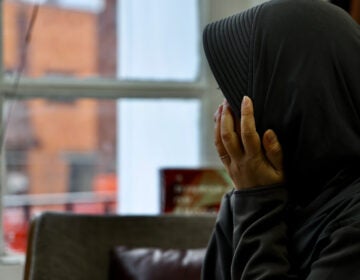Wilmington: 50 years after MLK discussion focuses on racial, income inequality
On the 50th anniversary of the assassination of Dr. Martin Luther King Jr., economists, psychologists and sociologists discussed racial and economic disparity in the United St
On the 50th anniversary of the assassination of Dr. Martin Luther King Jr., economists, psychologists and sociologists discussed racial and economic disparity in the United States.
During the event, “Wilmington: 50 years after Dr. Martin Luther King Jr.,” panelists addressed institutional structures that prevent blacks from achieving economic success, and how the community and those in power can break down those barriers.
Darrick Hamilton, director of the New School’s public and urban policy doctoral program, gave a keynote address on how race often determines one’s economic status.
“We need a societal shift from overemphasizing economic austerity and growth, which leads workers vulnerable to a fickle contingency of trickle down job creation,” he said.
“Instead, we need to prioritize equity, fairness and human capabilities, where we measure national economic health by how well we enable all our citizens to obtain our self-defined goals.”
A person’s economic background often defines a person’s outcome. Wealthier families are better able to finance elite independent schools or college education, access capital to start a business, finance expensive medical procedures, reside in neighborhoods with higher amenities and assert political influence, Hamilton said.
“Wealth gives you choice,” he said. “It provides economic security to take risk and shield against financial loss.”
However, the majority of wealth in the United States is held by whites. Blacks and Latinos make up 30 percent of the population, but only 7 percent of nation’s wealth, Hamilton said. Blacks earn 10 cents to the dollar of whites, and two thirds of blacks are “asset poor,” Hamilton said.
“The racial wealth gap is an inheritance that began with slavery, when blacks served as the capital asset of the white landowning plantation class,” he said.
“Still much of the framing around wealth disparity focuses on poor financial choices and the decision making on the part of blacks, Latinos and other poor borrowers.”
Capitalist social structures, and the rags to riches myth of the American dream, hold lower income individuals in their place, Hamilton said, as it favors a notion that an individual is responsible for their economic success.
He argues the belief that the wealthy have achieved their success by working hard and the poor haven’t climbed the class ladder because they’re lazy ignores the social structures that define a person’s position in society.
“The hardest workers are meant to prosper and endure, while the least astute, the least valued and laziest are presumed to receive just rewards, or fade away and have to find something else to do over time,” Hamilton said.
“These presumptions do little attention to the roles of power and initial capital and how that capital can adjust to alter the rules and structure the markets so as to privilege that capital and power in the first place.”
He discussed the difference between “good” and “bad” debt. Housing debt and student loan debt provide access to finance to purchase economic security from an appreciating asset like a house or a job in the managerial sector, Hamilton explains. However, the idea of good and bad debt has different implications once race is considered, he said.
“The framework of targeting unprivileged racial groups with inferior housing and educational projects. Predatory finance and housing and labor market discrimination limit choice set and rate of return to a home and rate of college degree based on race and ethnicity,” Hamilton said.
“Not surprisingly, black families turn to unconventional predatory lending, products like pay day lending—they do so as a last resort.”
Hamilton spoke about his 10-point action plan, which includes recommendations for an acknowledgment and redress of racial inequality, a federal job guarantee, employment audits, free tuition and a single payer healthcare system.
During a panel discussion, Michael Casson Jr., founding director of Delaware State University’s Center for Economic Development and International Trade, spoke of the importance of entrepreneurship for African Americans, who can hire blacks from their communities.
“For us it’s important to think about what steps we can take to push entrepreneurship and how can we then begin to build a community through our platform,” said the economics professor.
Casson Jr. also discussed the notion of “cultural competence.”
“If we’re all culturally proficient, we can understand each other’s communities and be inclusive,” he said.
Participant Shirley Jefferson, a retired telephone operator, said society is still too divided across racial lines, and among age groups.
“It’s not just black and white, it’s the Latinos,’’ said Jefferson, who is black. But there’s “such a separation between older people and younger people. We’re not pulling [the younger generation] along as much as we should.”
Retired University of Delaware professor of urban affairs and public policy Raheemah Jabbar Bey expressed the need for local activists to work together.
“Most nonprofits are competing with other nonprofits,” she said. “And we also act as if there’s a finite amount of resources, when in reality there are resources we don’t tap into. We need to figure out what can we agree needs to get done and work on it collaboratively.”
Participant Tom Davis, a retired Presbyterian pastor who heads a group aiming to reduce suicide among veterans, said he agrees.
“Perhaps social networks have contributed to this problem,’’ said Davis, who is white.
“I think people don’t reach out more because they are afraid. Perhaps in some cases they are afraid of physical harm but to a lesser degree afraid of being ostracized by their own group for reaching out. Or just feeling anxious about being in intimate contact with someone who is unlike themselves.”
Humanitarian Michelle Billups of Wilmington said before creating job opportunities for low-income African Americans, deep-rooted issues need to be addressed.
“We need mental health professionals that know how to deal with poor black people. We cannot be in the business of training people to do a job until we deal with these issues stemming from poverty, stemming from, ‘I don’t have job,’ stemming from, ‘I just came out of jail,’” she said.
“We have black men, women and children that have been incarcerated far too long, far too young. They come out with mental health issues.”
Following the event, panelist Yasser Payne, a sociology and criminal justice professor at the University of Delaware, gave his opinions on how to move forward.
“I think there needs to be a network in Wilmington, I think we need to theorize how we think about this justice network. I want to know who’s on the ground doing the grassroots work, how to connect to them and what their agendas are,” he said. “The unfair question is to ask us what do we do next. I think that’s a question politicians need to answer and be held accountable to.”
Davis said if King were alive today, he would be concerned that more advancements have not occurred for African Americans.
“There has been some progress made, but we have a long way to go, a long, long way to go,” he said.
Jefferson said individuals should continue to spread King’s message of unity.
“He wanted to show people that we can come together on religion, political, racial [issues] if we showed love,’’ she said. “(His) dream got lost between that time that he was killed until this period right now, in 2018.’’
WHYY is your source for fact-based, in-depth journalism and information. As a nonprofit organization, we rely on financial support from readers like you. Please give today.





